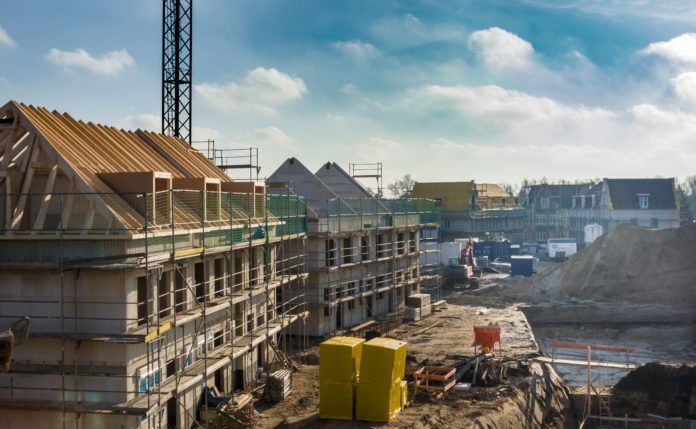A group of construction leaders have launched the Built Environment Carbon Database (BECD) in an industry-wide commitment to reduce the sector’s impact on climate change.
The project, which has been developed and funded by the Building Cost Information Service (BCIS) over the last three years and will launch on 5 October, is free-to-access and is designed to become the main source of carbon estimating and benchmarking for the industry.
The BECD steering group, which is responsible for its conceptual development, promotion and adoption, includes representatives from BCIS, RICS, The Carbon Trust, IStructE, BRE, CIOB, the Environment Agency, CIBSE, ICE, RIBA, the UK Green Building Council and ACE.
For James Fiske, BCIS CEO and chair of the steering group, the need to measure and report carbon data has reached a critical point.
He said: “With the government U-turning on green commitments, there has never been a more important time for the UK construction industry to take leadership on reducing its carbon emissions.
“With the recently updated RICS Professional Standard on Whole Life Carbon Assessment, which gives consistency to measuring environmental impact and is the net zero building carbon standard, we have the framework in place for us to do this.
“The other important part of the jigsaw is the data. Unless we have easy access to accurate and consistent carbon emissions data, and a place where we can share learning and experience, we will never truly understand if we are making the right decisions.”
The built environment is responsible for almost 40% of greenhouse gas emissions globally, which means the construction industry’s role to play in addressing the climate emergency cannot be understated.
However, a lack of unity in how the industry approaches the problem continues to be a barrier to finding effective solutions.
Fiske continued: “It has been a real joint industry effort, with all of the organisations and people who have generously given up their time through working groups or consultations, to get us to this point. The key now is that we push forward. If we are truly going to reduce our environmental impact, we need the industry to come together to share data and experience through BECD.”
Fabrizio Varriale, place and space analyst at RICS, is chair of the BECD’s working groups tasked with technical development of the database.
He said: “Poor data quality and the lack of standardisation and transparency in reporting practices are acknowledged as major barriers to a wider uptake of carbon assessments in the built environment.
“BECD aims to help the industry by providing a platform to report and retrieve the results of building carbon assessments.
“This will allow data sharing across the industry and the harmonisation of reporting practices in alignment with the RICS Professional Standard on Whole Life Carbon Assessment.
“Over time, the granularity of the project data collected through BECD will enable the industry to produce accurate benchmarks for specific project types and stages. BECD will also help professionals who are conducting carbon assessments by providing a uniform catalogue of product data, bringing together different sources of product life cycle assessments and environmental product declarations.”




